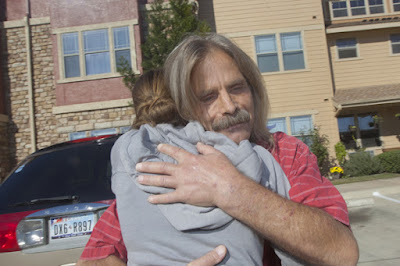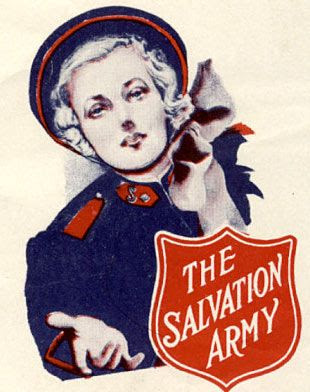Thursday, September 30, 2021
Wednesday, September 29, 2021
"A great secret of Rev. Tuckerman's success reaching the poor and downtrodden lay in his strong interest in individuals. It was not in his nature to act on the masses by general methods; he threw his soul into particular cases. Every sufferer whom he visited seemed to awaken in him a special affection and concern.
I remember well the language which he once used in regard to a man who had gone far astray. He said to me with deep emotion, "I want that man's soul; I must save him."
"He made the worst feel that they had a friend, and by his personal interest linked them anew with their race. He sought for something to love in all. He seized on anything good which might remain in the fallen spirit; if he could be touch on chord of love, one tender recollection of home, one feeling of shame or sorrow for the past, no matter how faintly, he rejoiced and took courage like the good physician who, in watching over the drowned man, detects a flutter of the pulse, or the feeblest sign of life. "
He did not break the bruised reed, or quench the smoking wick."
Tuesday, September 28, 2021
"The End is coming! Society cannot be improved! It's evils cannot be done away with!"
I reply, "this croaking has little significance to one who believes in Christ, the divinely ordained Regenerator of the world!
God permits evils for this very end, that they should be resisted and subdued. He intends that this world shall grow better and happier, not through His own direct hand, but through the labors and sufferings of our kindness, compassion, generosity and love. The greatness of its crimes and woes is not a ground for despair, but a call to greater effort. On our earth Christ has begun a war with evil. His cross is erected to gather together soldiers for the conflict, and victory is written in blood. The spirit which Jesus Christ breathes has already proved itself equal to this warfare." William Ellery Channing.
Monday, September 27, 2021
"If a child is left to grow up in utter ignorance of duty, of its Maker, of its relation to society, and to grow up in an atmosphere of profaneness and intemperance, and in the practice of falsehood and fraud, let not the community complain of his crime.
Very few can honestly say that they have no time or strength to spend beyond their families. How much time, thought, wealth and strength is wasted, absolutely wasted, by a large proportion of every people! Were the will equal to the power, were there a fraternal concern for the falling and fallen members of the community, what an amount of energy would be spent in redeeming society from its terrible evils without the slightest decrease of exertion at home." William Ellery Channing.
"Is it not an acknowledged moral truth, that we are answerable for all evil which we are able, but failed to prevent? Were Providence to put us in possession of a remedy for a man dying at our feet, and if we were to withhold it, would not the guilt of his death lie at our door?
On the same ground, much of the guilt and misery around us must be imputed to ourselves. Why is it that so many children in a large city grow up in ignorance and vice? Because that city abandons them to ruinous influences, from which it might and ought to rescue them. Whence come many of the darkest crimes? From despondency, recklessness, and a pressure of suffering which sympathy would have lightened. Human sympathy, Christian sympathy, were it to penetrate the dwellings of the ignorant, poor, and suffering, and were its voice lifted up to encourage, guide, and console, and its arm stretched out to sustain, what a new world would it call into being!" William Ellery Channing.
Sunday, September 26, 2021
"We are blessed to live in a rich country, but as I was reading a piece by William Ellery Channing, he was challenging the people of his day to look more closely at that prosperity.
"You talk of prosperity of your city. I know but one true prosperity. Does the human soul grow and prosper here? Do not point me to your thronged streets. I ask, Who throng them? Is it a low-minded, self-seeking, gold-worshiping, man-despising crowd, which I see rushing through them? Do I meet in them, under the female form, the gaily decked prostitute, or the idle, wasteful, aimless, profitless woman of fashion? Do I meet the young man showing off his pretty person as the perfection of nature's works, wasting his golden hours in dissipation and sloth, and bearing in his countenance and gaze, the marks of a profligate? Do I meet a grasping multitude, seeking to thrive by concealments and frauds? An anxious multitude, driven by fear of want to doubtful means of gain? An unfeeling multitude, caring nothing for others, if they may themselves prosper or enjoy? In the neighborhood of your comfortable or splendid dwellings are there abodes of squalid misery, of reckless crime, of bestial intemperance, of half-famished childhood, or profaneness, of dissoluteness, of temptation for thoughtless youth? And are these multiplying with your prosperity, and outstripping and neutralizing the influences of truth, and virtue? Then your prosperity is a vain show."
Saturday, September 25, 2021
“ Truth is to be discovered, and Pardon to be won for every man by himself. This is evident from innumerable texts of Scripture, but chiefly from those which exhort every man to seek after Truth, and which connect knowing with doing. We are to seek after knowledge as silver, and search for her as for hid treasures; therefore, from every man she must be naturally hid, and the discovery of her is to be the reward only of personal search. The kingdom of God is an treasure hid in a field; and of those who profess to help us to seek for it, we are not to put confidence in those who say, --- Here is the treasure, we have found it, and have it, and will give you some of it; but rather to those who say, --- We think that is a good place to dig, and you will dig most easily in such and such a way.
Farther, it has been promised that if such earnest search be made, Truth shall be discovered: as much truth, that is, as is necessary for the person seeking." John Ruskin.
“Some...come into holy obedience through the gateway of profound mystical experience.
It is an overwhelming experience to fall into the hands of the living God, to be invaded to the depths of one's being by His presence, to be, without warning, wholly uprooted from all earth-born securities and assurances, and to be blown by a tempest of unbelievable power which leaves one's old proud self utterly, utterly defenseless, until one cries, "All Thy waves and thy billows are gone over me" (Ps. 42: 7). Then is the soul swept into a Loving Center of ineffable sweetness, where calm and unspeakable peace and ravishing joy steal over one.
And one knows now why Pascal wrote, in the center of his greatest moment, the single word, "Fire."
There stands the world of struggling, sinful, earth-blinded men and nations, of plants and animals and wheeling stars of heaven, all new, all lapped in the tender, persuading Love at the Center. There stand the saints of the ages, their hearts open to view, and lo, their hearts are our heart and their hearts are the heart of the Eternal One. In awful solemnity the Holy One is over all and in all, exquisitely loving, infinitely patient, tenderly smiling. Marks of glory are upon all things, and the marks are cruciform and blood-stained. And one sighs, like the convinced Thomas of old, "My Lord and my God" (John 20: 28).
Dare one lift one's eyes and look? Nay, whither can one look and not see Him? For field and stream and teeming streets are full of Him. Yet as Moses knew, no man can look on God and live—live as his old self. Death comes, blessed death, death of one's alienating will. And one knows what Paul meant when he wrote, "The life which I now live in the flesh I live by the faith of the Son of God" (Gal. 220).
One emerges from such soul-shaking, Love-invaded times into more normal states of consciousness. But one knows ever after that the Eternal Lover of the world, the Hound of Heaven, is utterly, utterly real, and that life must henceforth be forever determined by that Real. Like Saint Augustine one asks not for greater certainty of God but only for more steadfastness in Him. There, beyond, in Him is the true Center, and we are reduced, as it were, to nothing, for He is all.
...Do not mistake me. Our interest just now is in the life of complete obedience to God, not in amazing revelations of His glory graciously granted only to some. Yet the amazing experiences of the mystics leave a permanent residue, a God-subdued, a God-possessed will. States of consciousness are fluctuating. The vision fades. But holy and listening and alert obedience remains, as the core and kernel of a God-intoxicated life, as the abiding pattern of sober, workaday living. And some are led into the state of complete obedience by this well-nigh passive route, wherein God alone seems to be the actor and we seem to be wholly acted upon. And our wills are melted and dissolved and made pliant, being firmly fixed in Him, and He wills in us.”
-from ‘Holy Obedience’
Friday, September 24, 2021
"Would you do good according to the Gospel? Do it secretly, silently; so silently, that the left hand will not know what the right hand doeth. We mean not to sever men from others in well doing, for we have said there are many good objects which can only be accomplished by numbers. But, generally speaking, we can do most good by individual action, and our own virtue is incomparably more improved by it. It is vastly better for example, that we should give our own money with our own hands, from our own judgment, and through personal interest in the distresses of others, than that we should send it be a substitute. Second-hand charity is not as good to the giver or receiver as immediate." Channing.
Thursday, September 23, 2021
Helping others find happiness
"We cannot, in the strict sense of the word, make any person happy. We can give others the means of happiness, together with motives to the faithful use of them, but on this faithfulness, on the free and full exercise of their own powers, their happiness depends. There is thus a fixed, impassable limit to human help and benevolence. It can only make people happy through themselves, through their own freedom and energy.
We go farther. We believe that God has set the same limit to His own benevolence. He makes no person happy in any other sense than in that of giving them means, powers, motives, and a field of exertion." William Ellery Channing.
Tuesday, September 21, 2021
"No human being exists whose character can be proposed as a faultless model. No process is so fatal as that which would cast all people into one mold. Every human being is intended to have a character of his own, to be what no other is, to do what no other can do. Our common nature is to be unfolded in unbounded diversities. It is rich enough for infinite manifestations. It is to wear innumerable forms of beauty and glory. Every human being has a work to carry on within, duties to perform abroad, influences to exert which are peculiarly his, and which no conscience but his own can teach. Let him not then, enslave his conscience to others, but act with the freedom, strength, and dignity of one whose highest law is in his own breast." William Ellery Channing.
"It is interesting to observe how the Creator, who has subjected the child at first to parental and family influences, has, even at that age, provided for it's growing freedom, by inspiring it with an overflowing animation, an inexpressible joy, an impatience of limits, a thirst for novelty, a delight in adventure, an ardent imagination, all suited to balance the authority of the old and gradually mingling with the trustful innocence of infancy that questioning, doubting spirit, on which intellectual progress chiefly depends.
It is only by putting forth this inward and self-forming power that we emerge from childhood. He who continues to be passively moulded prolongs his infancy to the tomb. There is deep wisdom in the declaration of Jesus, that to be His disciple, we must "hate father and mother;" or, in other words, that we must surrender the prejudices of education to the new lights which God gives us; that the love if truth must triumph over the influences of even our parents and our best and earliest friends; that forsaking the maxims of society, we must frame ourselves according to the standard of moral perfection set before us in the life, spirit, and teachings of Jesus Christ." William Ellery Channing.
Sunday, September 19, 2021
Zeal
"For the zeal of thine house hath eaten me up."
He who recollects that the Scriptures speak of a "peace which passeth understanding," and a "joy unspeakable and full of glory," will be more disposed to lament the low state of his own feeling, than to suspect the propriety of sentiments the most rational and scriptural, merely because they rise to a pitch that he has never reached. The Sacred Oracles afford no countenance to the supposition that devotional feelings are to be condemned as visionary and enthusiastic merely on account of their intenseness and elevation; provided they be of the right kind, and spring from legitimate sources, they never teach us to suspect they can be carried too far.
David danced before the Lord with all his might, and when he was reproached for degrading himself in the eyes of his people by indulging in such transports, he replied, "If this be vile, I will yet make myself more vile."
The objects which interest the heart in religion are infinitely more durable and important than all others will not be disputed; and why should it be deemed irrational to be affected by them in a degree somewhat suitable to their value." Robert Hall.
Friday, September 17, 2021
Tuesday, September 14, 2021
"We are aware that some may think that we are exalting intellectual above moral and religious influence. They may tell us that the teaching of moral and religious truth, not by philosophers and boasters of wisdom, but by the comparatively weak and foolish, is the great means of renovating the world. This truth we indeed regard as "the power of God unto salvation." But let none imagine that its chosen temple is an uncultivated mind, and that it selects as its chief organs, the lips of the unlearned. Religious and moral truth is indeed appointed to carry forward mankind; but not as conceived and expounded by narrow minds, not as darkened by the ignorant, not as debased by the superstitious, not as subtilized by the visionary, not as thundered out by the intolerant fanatic, not as turned into a driveling cant by the hypocrite. Like all other truths, it requires for its full reception and powerful communication a free and vigorous intellect."
William Ellery Channing.
Thursday, September 09, 2021
The Crest emblem sets forth the leading doctrines of The Salvation Army as follows:
- The sun (the surround) represents the light and fire of the Holy Spirit
- The cross of Jesus stands at the centre of the crest and the Salvationist’s faith
- The ‘S’ stands for Salvation from sin
- The swords represent the fight against sin
- The shots (seven dots on the circle) stand for the truths of the gospel
- The crown speaks of God’s reward for His faithful people
- “Blood and Fire” is the motto of The Salvation Army. This describes the blood of Jesus shed on the cross to save all people, and the fire of the Holy Spirit which purifies believers. The red shoulder strap represents the blood of Christ.
Wednesday, September 08, 2021
How to minister to the poor
If you feel the call of God to minister to the downcast, the poor, the abused and addicted, here is some invaluable advice.
"If I had time I might suggest several rules or cautions, particularly needed when ministering with the poor, abused, addicted and downcast. But I will offer only one or two suggestions. In one important respect your work is different from the common ministry, that is, in the distribution of your time. Your life is to be spent, not in a retired study, but very much in visits from house to house; and this has its advantages. It will bring you near to the poor, and awaken your sympathies with them, and acquaint you with their needs, and give them a confidence in your attachment which will open their hearts to listen and share.
But it has, too, it's disadvantages. There is danger that your mind may be frittered away by endless details, by listening continually to frivolous communications and suspicious complaints. To escape these narrowing influences, you should steadily devote a part of every day to solitary study; and still more, you should make it your rule to regard the events and experiences of every day as lessons, and strive to extract from them general truths, so that the intellect may enlarge itself in the midst of the humblest concerns. In the meanest hovel, the great principles of human nature and of God's moral providence will be set before you for study and observation. Every man is a volume, if you know how to read him.
Another peculiarity of your ministry is, that you will see human nature more undisguised, naked, and raw than we normally see. You are to go among those who have not learned how to cover up the deformities of the soul by courtesy and graceful speech. You will see more of the coarser appetites and passions. Not that you are to meet more guilt than the rest of us. The selfishness and deceit of the market or of fashionable life, however wrapped up in refined manners, are not a bit the fairer in God's sight than the artful or grasping habits of the poor. Still, we are in peculiar danger of losing our respect for human nature when it offers itself to us in repulsive, uncouth, vulgar forms and language. Remember to be candid and just to the poor. Treasure up in your memory the instances, which you will often meet among them, like deeds of generosity, patience, domestic love, and self-control; and don't forget that their destitution and suffering add to these virtues a moral worth not belong to the good deeds of a prosperous life.
Look beneath the outward to the spiritual, the immortal, the divine. Feel that each of the poor is as dear to God as the most exalted in condition, and approach them with humanity and respect. I don't mean by this that you should use flattering words. Be true, honest, plain. Speak to them your mind. Rebuke wrong-doing openly, firmly. The respect won by manly courage and simplicity will give you greater power than any attachment gained by soft soothing words. Be rough rather than affectedly complacent. But with plain dealing you can join a sympathizing heart, and in the union of these you will find strength.
And above all, go to Jesus Christ for guidance, inspiration, and strength in your ministry. This precept is easily uttered, but not easily followed." William Ellery Channing.
Tuesday, September 07, 2021
Minister at Large
"While other ministers gather worshippers into their churches from all conditions of life, you expect to labor chiefly among the less prosperous, the destitute. It may be thought, at first, that this peculiarity must make a wide distinction between your office and the common ministry; that is must demand almost a totally different style of preaching; that all your labors must take a hue and impress from the condition of those whom you teach. I counsel you not to be misled by this natural impression. I see no great distinction between you and other ministers. I advise you to bring habitually to your mind, not the outward condition of men, but their spiritual nature, their participation of that "divine humanity" which is the only wealth of rich or poor. My brothers, look on your hearers as children and heirs of God: and remember that your work is to call out and to build up the divine nature within them, and let such thoughts give you a consciousness of the dignity of your office.
First, Preach the Truth, and for this end you must seek and get it. To see things as they are, to see them through clear, uncolored medium, to strip them of every disguise, to put to silence our own passions and prejudices, to resist the intolerance, the servility, the established errors and earthy modes of thought, the arrogant pretensions and nervous fears of the multitude around us, and amidst all these hinderances and obscurations, to discern the truth in its simplicity and majesty; and hold fast this truth openly, fearlessly, amidst outcry, scorn, desertion, persecution, is a heroism before which the exploits of conquerors grow vulgar and tame." William Ellery Channing.























